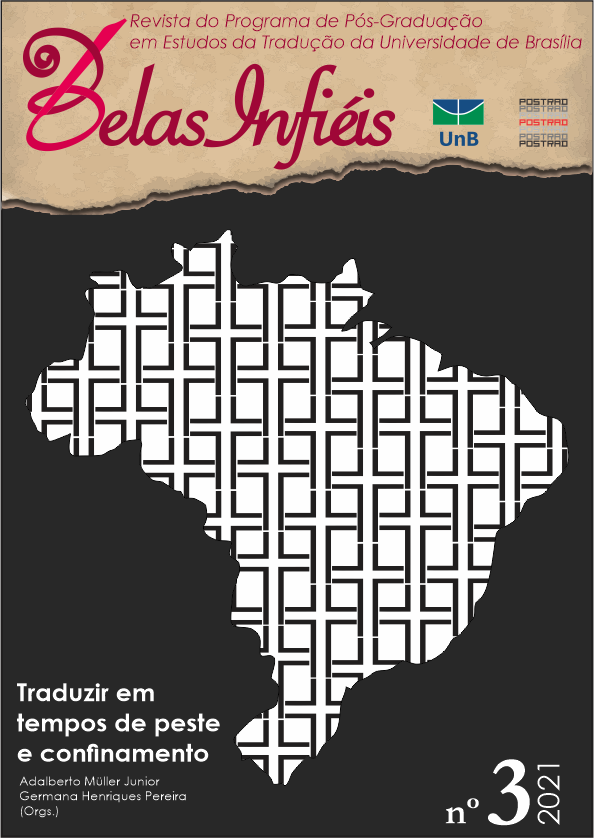Classical Chinese poetry in co-translation: Horizons from the stork tower
DOI:
https://doi.org/10.26512/belasinfieis.v10.n3.2021.33844Keywords:
Poetics of Translating; Tang Poetry; Co-translation; Interpretation; RewritingAbstract
In 2020, in the midst of the pandemic, the course “Poetics of Translating - mosaic of cultures” took place, during which emerged a co-translation project of the poem 《登鹳雀楼》 by Wang Zhihuan (王之涣) (688─ 742), Chinese poet from the Kaiyuan Era of the Tang dynasty. The description of the collective process of interpretation and rewriting aims to problematize the reach of the gaze in the face of a conceptual regime of imagination so distant in time and space, exploring linguistic and poetic potentialities of Portuguese.
Downloads
References
Cheng, F. (1996). L’écriture poétique chinoise. Seuil. (Trabalho original em 1977)
Démieville, P. (1967). Anthologie de la poésie chinoise classique. Gallimard.
Jullien, F. (2009). Les transformations silencieuses. Grasset.
Meschonnic, H. (1999). Poétique du traduire. Verdier.
Portugal, R. P., & Xiao, T. (2019). (Orgs.), Antologia da poesia clássica chinesa – Dinastia Tang (2a ed.). Unesp.
Suzuki, D. T. (1971). Introdução ao Zen-Budismo. Pensamento.
Tang, Y. (2014). Translating across Cultures: Yi Jing and Understanding Chinese Poetry. Intercultural Communication Studies.
Wang, C. (2020). Chinese Text Project. https://ctext.org/wiki.pl?if=gb&chapter=581496&remap=gb.
Downloads
Published
How to Cite
Issue
Section
License
Copyright (c) 2021 CC BY

This work is licensed under a Creative Commons Attribution 4.0 International License.
Given the public access to this journal, the texts are free to use but requires the recognition of the original authorship and initial publication in this journal to be properly stated.
 The journal allows the use of works published for non-commercial purposes, including the right to submit the work to publicly accessible databases. Published contributions are the sole and exclusive responsibility of the author(s).Â



















